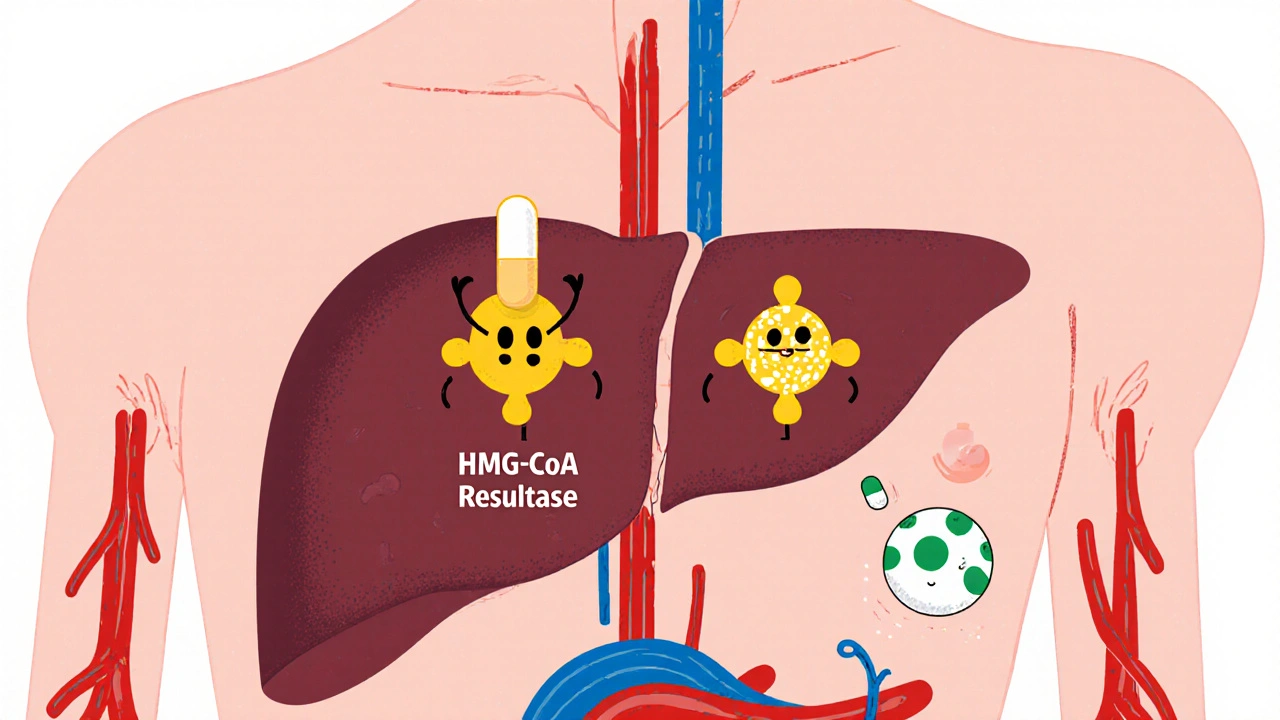Statin Medications: What They Are, How They Work, and What You Need to Know
When doctors talk about lowering cholesterol, statin medications, a class of drugs designed to reduce LDL (bad) cholesterol by blocking an enzyme your liver uses to make it. Also known as HMG-CoA reductase inhibitors, they’re among the most prescribed drugs in the world because they cut heart attack and stroke risk by up to 30% in high-risk people. If you’ve been told your cholesterol is high, chances are your doctor mentioned a statin—maybe even prescribed one. But what exactly are these drugs doing in your body, and why do so many people stop taking them?
Statin medications don’t just lower cholesterol numbers. They also reduce inflammation in artery walls, which helps prevent plaque buildup. That’s why they’re used not just for people with high cholesterol, but also for those with diabetes, a history of heart attack, or even normal cholesterol levels but high overall risk. The most common ones—like atorvastatin, rosuvastatin, and simvastatin—work similarly, but differ in strength, how long they last, and how they interact with other drugs. Some people notice muscle aches, which is the most common side effect. Others get digestive issues or feel unusually tired. Rarely, they can affect liver function or raise blood sugar levels. That’s why regular check-ins with your doctor matter, especially when you’re on other meds like antibiotics, antifungals, or even grapefruit juice, which can spike statin levels dangerously.
Statin medications aren’t a cure-all. They don’t fix poor diet or lack of movement. But when paired with lifestyle changes, they’re one of the most effective tools we have for preventing heart disease. You’ll find posts here that dig into how statins interact with other drugs—like acid reducers that mess with absorption, or antibiotics that increase side effect risks. You’ll also see how they compare to newer cholesterol drugs, what to do if you can’t tolerate them, and why some people still have high LDL even while taking statins. This isn’t just about pills. It’s about understanding how your body responds, what to watch for, and how to talk to your doctor when something doesn’t feel right.

Statin Medications: How They Lower Cholesterol and What You Need to Know About Muscle Pain
- Nov, 20 2025
- Daniel Remedios
- 12 Comments
Statins lower cholesterol and cut heart attack risk by up to 30%, but muscle pain affects up to 29% of users. Learn how they work, which statins cause fewer side effects, and what to do if you experience muscle pain.
